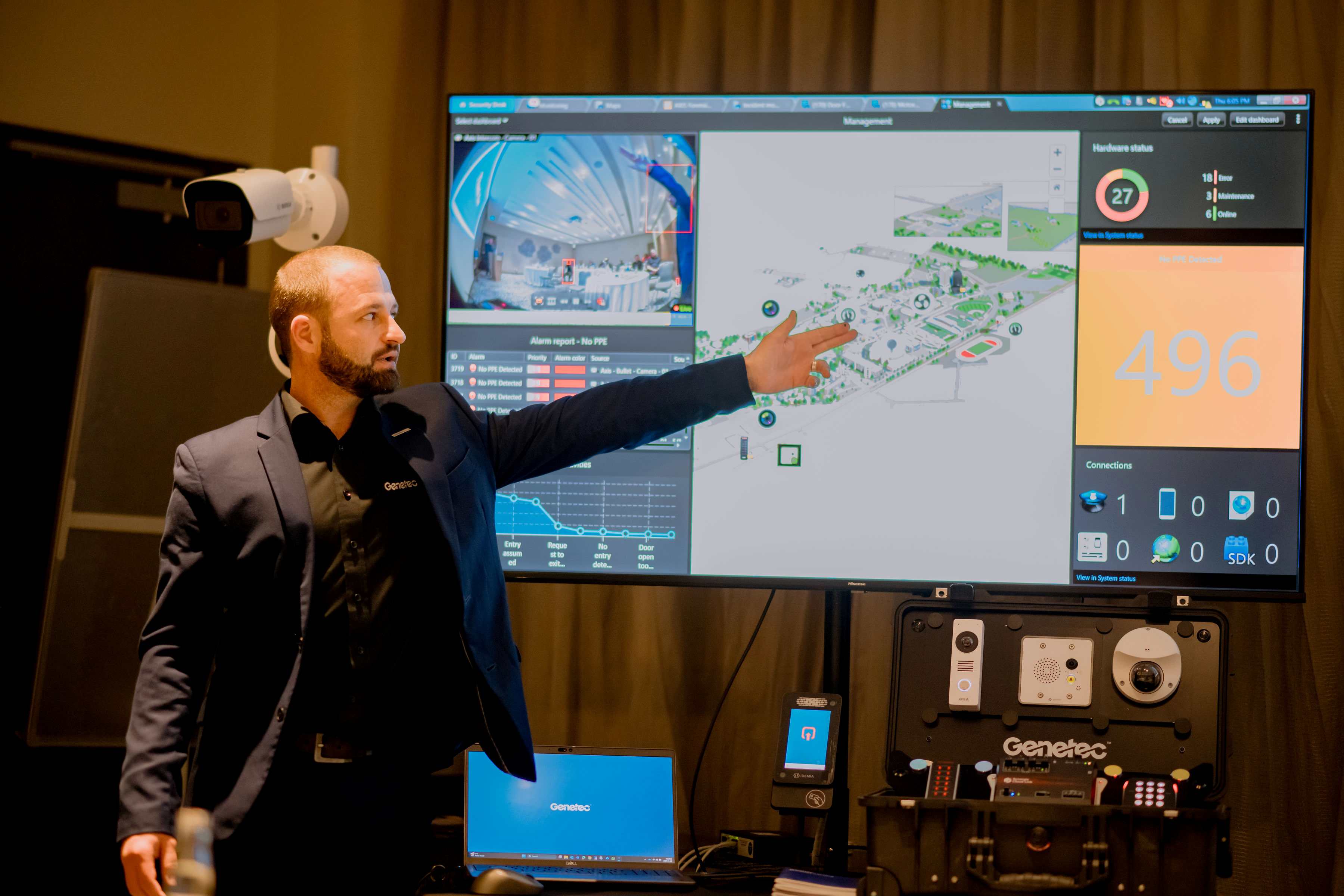Global tech firms drive major overhaul of East Africa's physical security infrastructure

Kenya has already made strides in digital security, exemplified by Nairobi’s integrated command centres and M-Pesa-linked ID systems. Yet, challenges remain, including budget constraints, a shortage of skilled professionals, and heavy reliance on imported hardware.
As East Africa rapidly digitises and modernises its urban centres, a critical gap persists in the region's cybersecurity and physical security infrastructure, leaving cities vulnerable to evolving threats.
A new spotlight has been cast on this challenge as global technology firms increasingly step in to bridge the divide, signalling a transformative shift in the continent's security landscape.
More To Read
- Interpol sounds alarm as cybercrime surges in East Africa amid digital boom
- Blogger Maverick Aoko's cybercrime case: Court sets July 7 for prosecution ruling
- Six suspects arrested in Mombasa in multi-million cybercrime bust
- Kenya records surge in cybercrime with 82 per cent targeted, gaming sector most hit - report
- Two suspected SIM swap fraudsters detained after stealing Sh589,800 from victim
- Google's AI-powered efforts block 5.1 billion malicious ads amid rising threats
Last week, Nairobi played host to the first East African Security Symposium, organised by Genetec Inc., a Canadian company renowned for its enterprise physical security software. The event, far from a routine gathering, underscored how international tech leaders are now actively shaping the future of security technology deployment across East Africa, setting new standards and driving innovation.
For decades, physical security in Kenya and much of East Africa—encompassing CCTV cameras, access control, and perimeter alarms—has relied on fragmented systems from various vendors.
These setups, often poorly integrated and difficult to scale, are ill-equipped to handle modern complexities like cybersecurity threats, managing crowded urban environments with features like facial recognition, or combating coordinated criminal networks.
As Halima Noor, an Eastleigh businesswoman, told The Eastleigh Voice, many users are simply unaware of their systems' true capabilities: "We just know they're there, but how they work or if they can handle serious threats, I don't really understand."
Three converging trends are driving this urgent need for change:
Rapid Urbanisation: Africa's urban population is projected to double to over 1 billion by 2040, with Nairobi alone expected to hit 10 million by 2030. This growth demands advanced security solutions to manage densely populated areas.
Expansion of Digital Infrastructure: East Africa is witnessing a surge in digital connectivity, with Kenya boasting over 130 million mobile subscriptions and extensive fibre optic network deployment. This digital foundation is crucial for advanced technologies like AI-powered video analytics.
Growing Security Awareness: With cybercrime losses estimated at over $3 billion annually across Africa, and significant threats from terrorism and organised crime, governments and private firms are increasingly investing in integrated security platforms that unify physical infrastructure with cybersecurity tools.
At the symposium, Genetec showcased its Security Centre as a Service (SCaaS) platform, a cloud-based system that allows seamless oversight of multiple security functions from a single, remote interface. This shift to the cloud reduces infrastructure costs, simplifies upgrades, and enhances real-time threat responsiveness, enabling security managers to monitor multiple sites remotely with AI-powered alerts.
 Quintin Roberts, regional sales manager - Africa, Genetec, speaking during the inaugural Security Symposium in Nairobi. (Photo: Patrick Karanja)
Quintin Roberts, regional sales manager - Africa, Genetec, speaking during the inaugural Security Symposium in Nairobi. (Photo: Patrick Karanja)
However, the increasing adoption of cloud-based systems by foreign tech companies also raises critical questions about data sovereignty and local compliance with evolving data protection laws, such as Kenya's Data Protection Act, 2019, and the recently published Kenya Cloud Policy, 2025.
Globally, the video surveillance market is booming, with Africa seen as a "next frontier" by companies like Genetec, Huawei, and Dahua. Beyond profit, these companies also seek to influence how security systems function across the continent.
Kenya has already made strides in digital security, exemplified by Nairobi’s integrated command centres and M-Pesa-linked ID systems. Yet, challenges remain, including budget constraints, a shortage of skilled professionals, and heavy reliance on imported hardware.
As Quintin Roberts, regional sales manager for Africa at Genetec, noted, "Security is no longer a passive function; it’s a strategic enabler... we’re delivering data-driven solutions that meet sector-specific challenges across the region."
This transformation signifies a crucial moment for East Africa as it navigates the complex intersection of digital growth, urban expansion, and the imperative for robust, integrated security.
Top Stories Today
















































